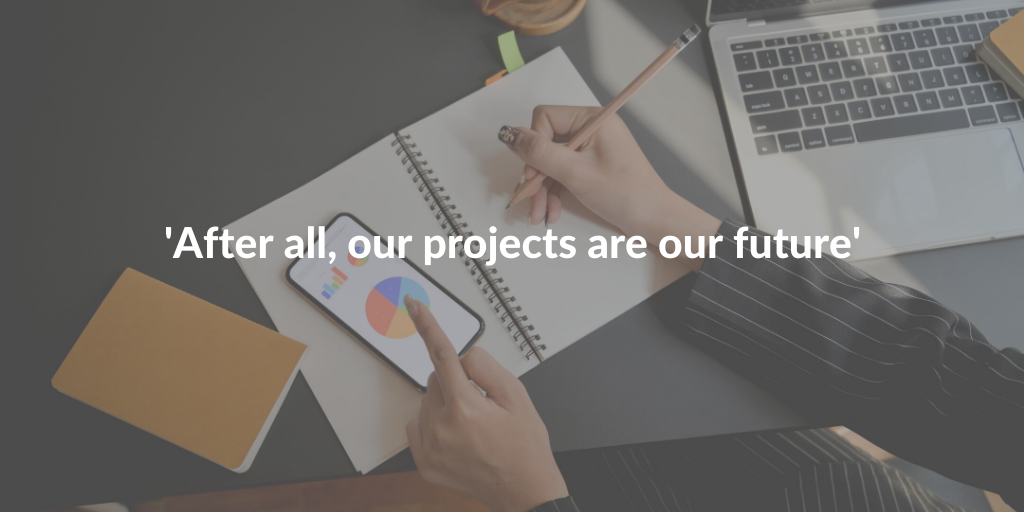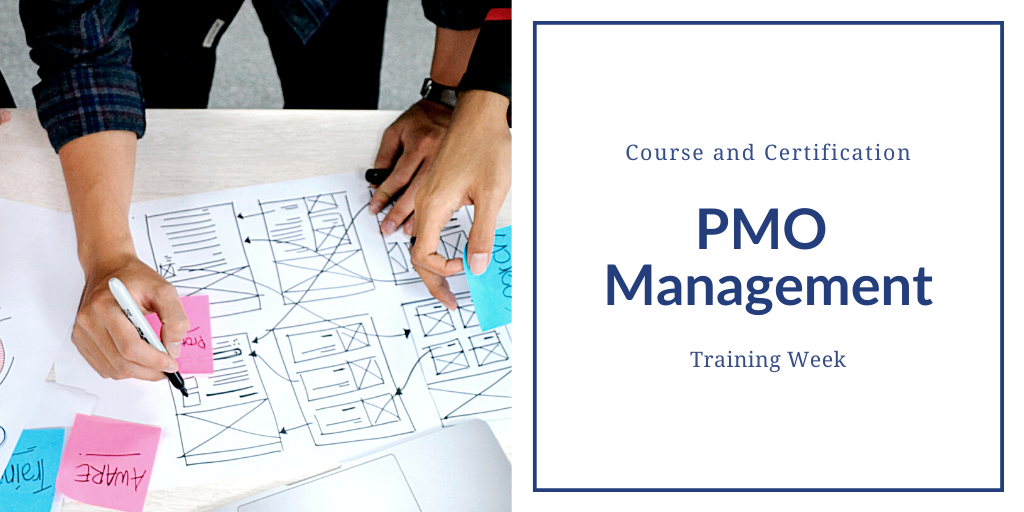Why is Project Management Office (PMO) critical to business?

Marisa Silva is a passionate advocate of the value of PMOs as business partners and enabling strategic change delivery. She is is an experienced PMO and PPM adviser, educator, author, and international speaker.
I read in your headline on LinkedIn: Making PMOs critical to the business. How do you do it?
PMOs are an interesting species in the Project Management universe because they face an underlying paradox in their ‘raison d’ être‘: while they exist to meet the needs of the business, if all projects were successful, in principle, then you would assume that there would be no need for PMOs.
So, asking how to make PMOs critical to business is indeed a key question that should be ever-present in the mind of PMO professionals. My view is that PMOs can become critical if they adopt three key imperatives.
. First, the Imperative of the Business.
PMOs which are critical in the organization are business-centric, a trusted partner which enables project delivery, that is, all their functions are designed to serve the business. PMOs need to start thinking of themselves as a service.
Their service catalog can then cover a variety of activities, from ensuring that projects are delivered in the right way (project management) but also that the right projects are carried out (portfolio management) and with the appropriate level of competency.
. Second, the Imperative of Agility.
While different methodologies and approaches have been developed for projects and project teams to embrace agility, not much is being said about PMOs. However, PMOs are probably the organizational entities that need them the most; not only do they inform and centralize project management practices, but they also have a bad reputation as bureaucratic, slow supportive bodies. PMOs need to embrace Agile too!
They need to change their role from a top-down, command and control function, to one of a PMO on the sidelines, providing support and focusing on capability rather than control, and empowering teams to define and to work with the joy of minimum viable bureaucracy.
. Finally, the Imperative of Value, the cornerstone of PMOs.
You will certainly find this buzzword in the PMO mandate, in the PMO roadmap, or any presentation about the purpose of the PMO. PMOs are created to enable the creation of value, helping the business to maximize its bang for the buck.
At their core, PMOs are all about value. However, value is a subjective concept and what is valuable to me might not have any value to you. The value lies in the eyes of the beholder. Thus, it is fundamental that PMOs start to look at their stakeholders as customers instead and that they ask what these customers want if they are to deliver to their value expectations.
Also, we need to start measuring our own delivery of value – we demand it from project teams, so why not be transparent about our performance ourselves? – and communicating more.
I know plenty of PMOs who are fantastic in what they do, yet few know where they sit in the office or who they are! In a nutshell, critical-to-business PMOs are servant leaders, passionate about what they do, and able to adapt to the needs of the business with agility.
How did your passion for projects start?
What’s the thing you love the most about your job?
My career was born in a project management consulting company; thus I was, in a way, infected by the energy and passion for projects of my colleagues and mentors. I was lucky enough to learn from individuals who are very experienced and knowledgeable and invested in my professional and personal development.
If there is advice I can give to anyone starting in the project management world: get a mentor. It is an enriching life experience.
Working as a project lead, consultant, and trainer in project management, what I love the most is the diversity of industries, project types, and dimensions I get to work with. I am always learning something new every day, and I love it.
One day I’m doing a PMO maturity assessment to a company dealing with nuclear waste in the North of England, the next day I’m delivering a workshop to a Council in a remote location, and next flying to Germany to train a company on using a PPM tool.
Yes, it can be tiring, but I would be lying if I said I didn’t like this busyness. I’m very lucky to be able to work in an industry I love, and to have learned and worked with so many amazing companies and people to date. It’s no coincidence that I call myself The Lucky PM!
What’s the biggest issue you see in the PM community at the moment?
There are many aspects that are worth mentioning but I’d like to stress three of them which are not exclusive to the PM community but are still very visible amongst us. One is our resistance to think beyond the status quo, the norm. We need to start thinking more critically in project management, challenge more, question more.
In a time where there are information overload and a growing body of knowledge, we shouldn’t just accept solutions “prêt-a-porter”, fast-thinking and oversimplifying the reality but instead, explore different perspectives and not rush into solution-mode when, sometimes, not even the problem is clear or when there is no simple solution.
The second one has to do with a view of project management as a “just-do-it” discipline and project practitioners as doers. I think there is much to lose for the profession if we remove our responsibility from the front-end and legacy of our projects. Projects change the world, literally, and as the saying goes “with great power comes great responsibility”.
Unfortunately, I often see the power but not always the responsibility. To this end, my third rant of the day relates to the missed opportunity for more projects for humanity with a global impact. With our competencies, we are in a privileged position to make a difference and to start driving a consciousness for project management.
With the recent pandemic, some good examples start to show but we still need more sustainable, responsible project management. After all, our projects are our future. We should ensure that we are making it a good one.
What’s in your opinion the impact of the COVID 19 pandemic on projects? How is this situation changing the community?
There is no question that COVID 19 changed the world as we knew it to the point that we can talk of a BC (before COVID) and AC (after COVID) time. Projects were no exception. Some were canceled, postponed, portfolios of work and budgets had to quickly be reviewed.
This is not entirely a bad thing though. For a long, we have heard about the necessary revolution in working practices, with digital nomads, self-learning solutions, flexible working, remote teams, etc. Whether organizations like it or not and were prepared or not, the time has come for us to trial the concept.
And surprise: for many organizations, it’s working! We didn’t need all those meetings, all that office space, all the structure after all. Work still gets done if done from home. The same happened with digital transformation. After years of preaching about it, companies were “forced” to finally do something about it.
And projects for humanity are being born out of crisis too, such as Tech4COVID19 or PMOsHackingCovid, which makes me proud of working in project management, with people at heart, as it should be. I think that, as a community, we will become more flexible, aware, antifragile, and, above all, more human and conscious of one another from COVID 19.
What’s your advice on how to solve/face this situation?
I don’t want to romanticize the problem and I’m not even sure if there is a solution. For the time being, I think COVID will remain a situation to cope with rather than to solve, at least until a vaccine is available. But I also believe that we are not defined by the challenges we might face but by how we respond to them.
Therefore, I think this crisis gives us a chance to decide to look at its positive impact. The crisis can unite people. Over the past weeks, particularly in the countries more impacted by the virus, we have seen a multitude of gestures of kindness, collaboration, and solidarity (such as to thank the tireless work of healthcare professionals), that remind us that we are just one big family.
We share the same concerns, the same anxiety, the same dreams, and fears. We learn, suffer, and are inspired by each other, no matter where in the world. We are more resilient than we think. We are all in this together. The fact is that COVID 19 is still out there so we might as well do something of value with it, even if it is just about providing encouragement, assurance, and support to others.
Let us use this opportunity to reflect and review our priorities, including in our PMOs! To acknowledge our fragility and to value what matters most. To say “thank you”, “I’ve got your back”, and “great job!” more often.
To use our time more wisely and to re-invent ourselves.
Together. Let’s not ask what would happen if the world ended with this crisis but what can we do differently in our projects and lives if the world re-started.
This is our wake-up call.
An opportunity not to be wasted.

Marisa Silva
Marisa Silva, also known as ‘The Lucky PM’, is an experienced PMO and PPM adviser, educator, author, and international speaker. She is a passionate advocate of the value of PMOs as business partners and enabling strategic change delivery!








